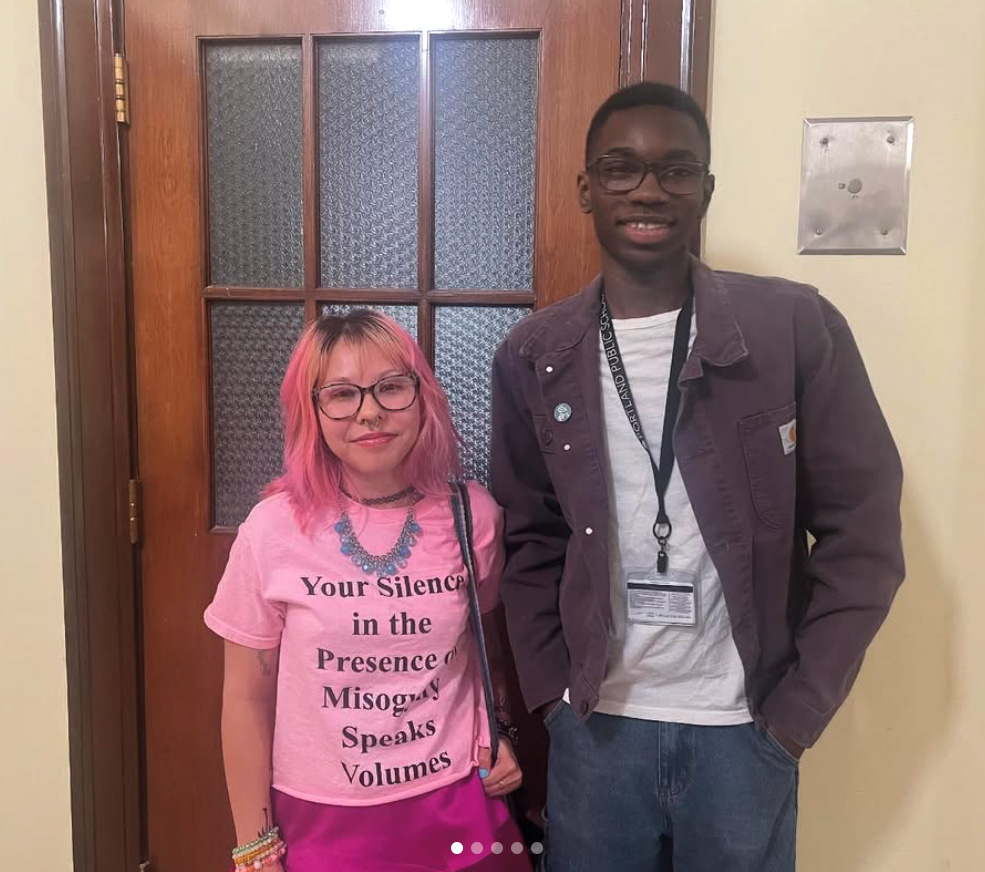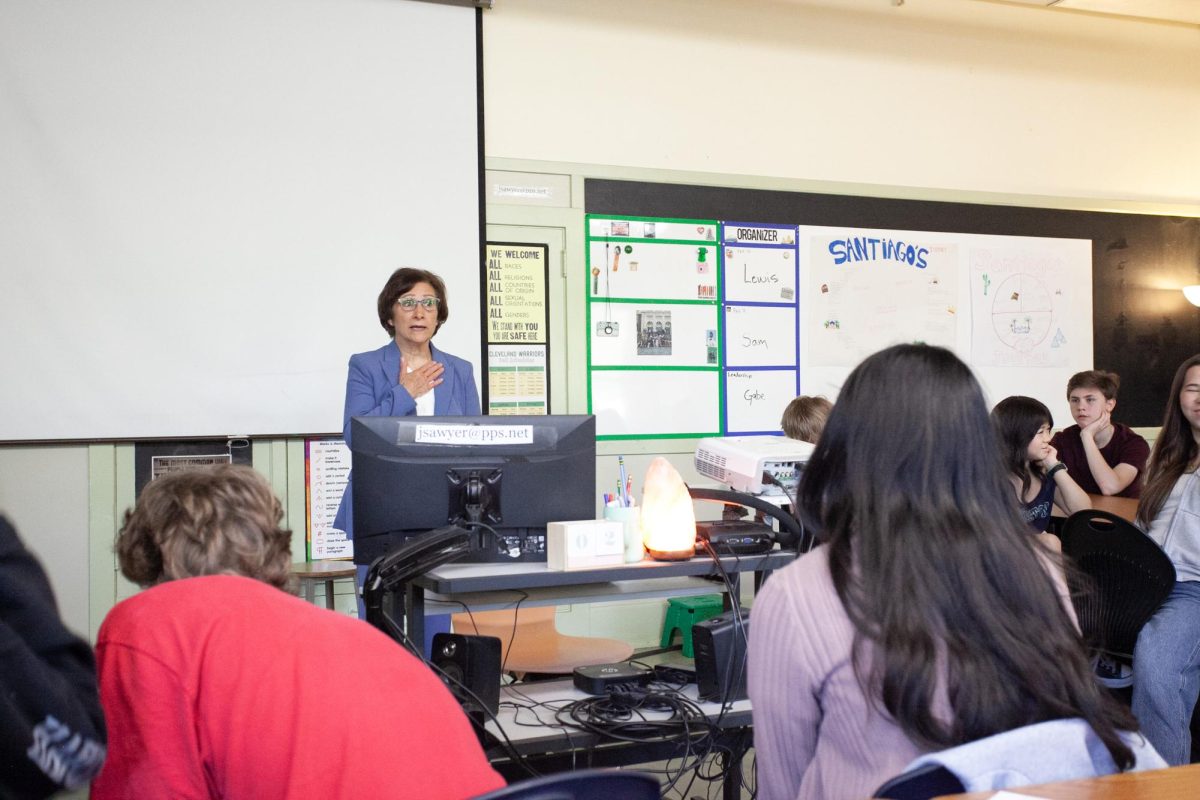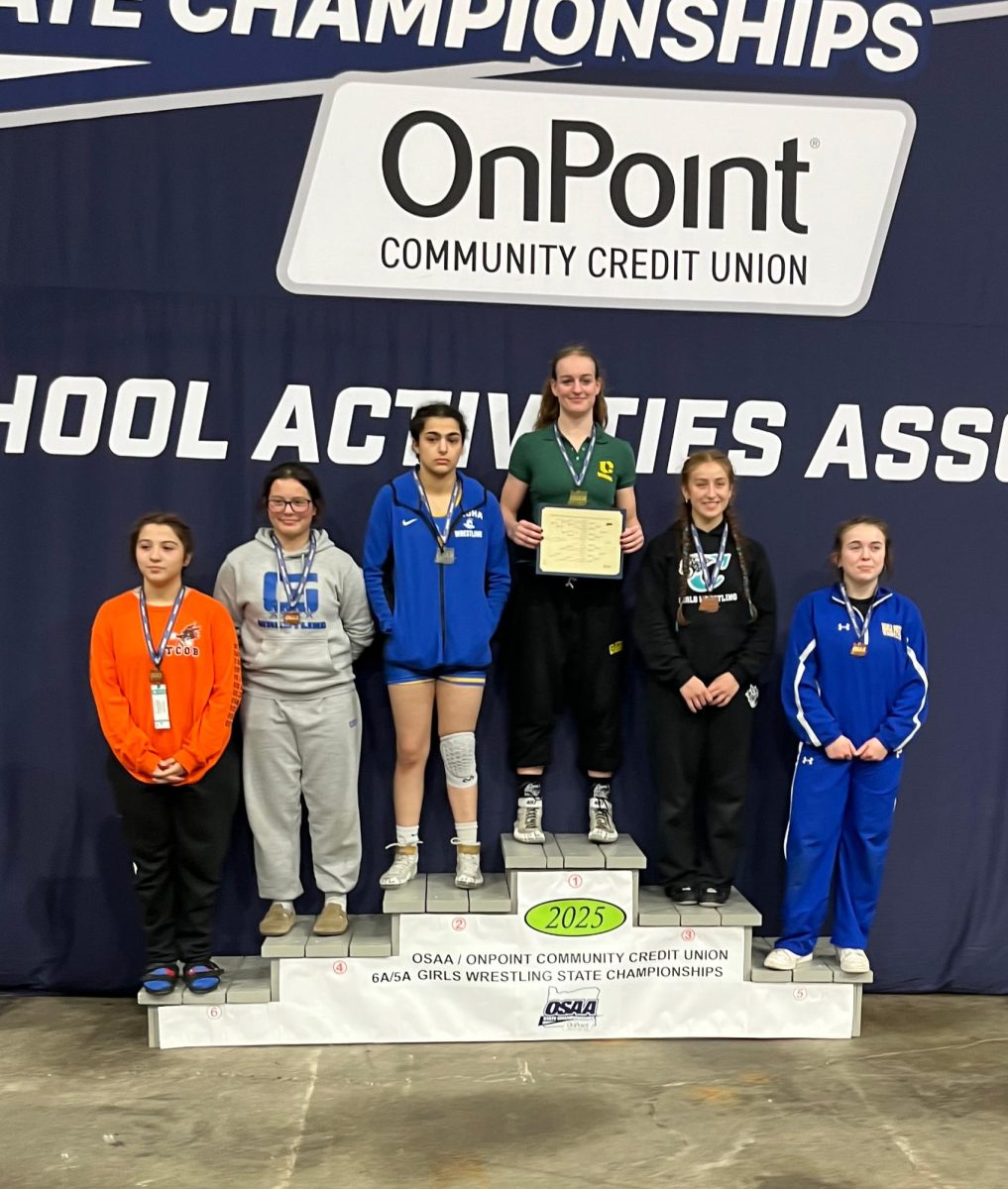Second Year, Finally a Contract
February 23, 2018
Portland Public Schools teachers were without a contract for close to two years. Ultimately, after five days of continuous negotiations, the Portland Association of Teachers (PAT) settled on a tentative contract agreement with PPS in the early morning hours of Jan. 16. This agreement followed various setbacks, changing leadership, and mounting frustration among teachers. Details of the contract were made public once PAT members took a final vote. Consequently, the school board ratified the new contract at a meeting on Feb. 8. This is a three year contract, with an option for a fourth year if both sides agree to extend it.
Members of all parties are hopeful that this agreement is symbolic of decreasing hostility between PAT and PPS.
“I think that there is the feeling that there is a little bit less animosity between the union and the district, which is a good thing,” said Cleveland teacher Steve Nims.
PAT Bargaining Chair Steve Lancaster echoed that sentiment in a statement put out by the district. “I now have reason to hope that we are entering into a new era of mutual respect and collaboration,” he said.
Multiple bargaining briefs sent out by the PAT indicate that their main demands for the new contract were reductions in teacher workload, competitive salaries, and increased support and resources for special education teachers.
According to PPS, retroactive pay will be sent to teachers as a lump sum during March. This will consist of 3 percent of total salary from the 2016-2017 work year and 2.75 percent of total salary from the 2017-2018 school year. Beginning in March, paychecks will reflect the new salary, which is a 2.25 percent increase. There are also new limits on class sizes and teacher caseloads, with plans for additional pay if thresholds are exceeded.
Cleveland PAT representative Mike Bauer believes that most teachers are pleased with the terms of the new contract. “You can’t get everything…But I think for the most part, yes, teachers are satisfied,” he said.
“We were able to address the issues that matter most to parents, students, and educators by making compromises, not sacrifices,” said PAT President Suzanne Cohen.
Working without a contract meant that PPS teachers retained their benefits and pay, but were not eligible for pay increases if they completed professional development trainings or moved up on the seniority ladder. These things would equate to mandated pay increases had they been working under a contract.
Additionally, one reason that the contract is renegotiated every three years is to allow for a cost of living reassessment: making sure that teachers are being paid proportional to the cost of living in their area. Prior to the tentative agreement, a cost of living reassessment had not been done for almost two years.
“It’s becoming more and more expensive to live in the city of Portland,” said Bauer.
Continuous pressure from the PAT played a large role in finally getting the contract settled. However, Bauer also believes that the conclusion of this issue was largely due to the fact that the new superintendent, Guadalupe Guerrero, wanted to wrap this up quickly to start his term on the right foot.
“I’m optimistic that he [Guerrero] wants to invest in Portland Public Schools and our students.” said Bauer. “He talks a good talk, but we will see how it goes.”
“This framework agreement is an important milestone in the union’s and District’s willingness to work professionally and collaboratively to improve student learning and achievement as well as teacher supports and compensation,” said Guerrero in a statement put out by PPS.
Nims suspects that one of the reasons this agreement finally came together was the threat that the PAT would call for an impasse, one of the precursory steps for a strike.
“When you call for an impasse, that sets the wheels in motion for there to eventually be a strike. You don’t strike right away,” explained Nims. “I think they [the PAT] felt like they were being strung along, and they didn’t want to be strung along anymore… . When you call for an impasse, that means you are serious about going on a strike.”
Teachers all over the district have let out a collective sigh of relief now that this struggle has concluded. “There’s a huge sense of relief. There’s nothing worse than not only not having a contract, but putting in huge amounts of time and effort outside of school to get one,” said Bauer.
“There’s a lot that needs to be worked on within PPS … there’s still a good deal of distrust between teachers and district administration,” said Nims, “but I think people feel that their voices were heard.”
“I can’t tell you how many hours I’ve spent away from my family to advocate for myself and other teachers,” Bauer said. “It’s done, and hopefully we won’t have to do this again.”










